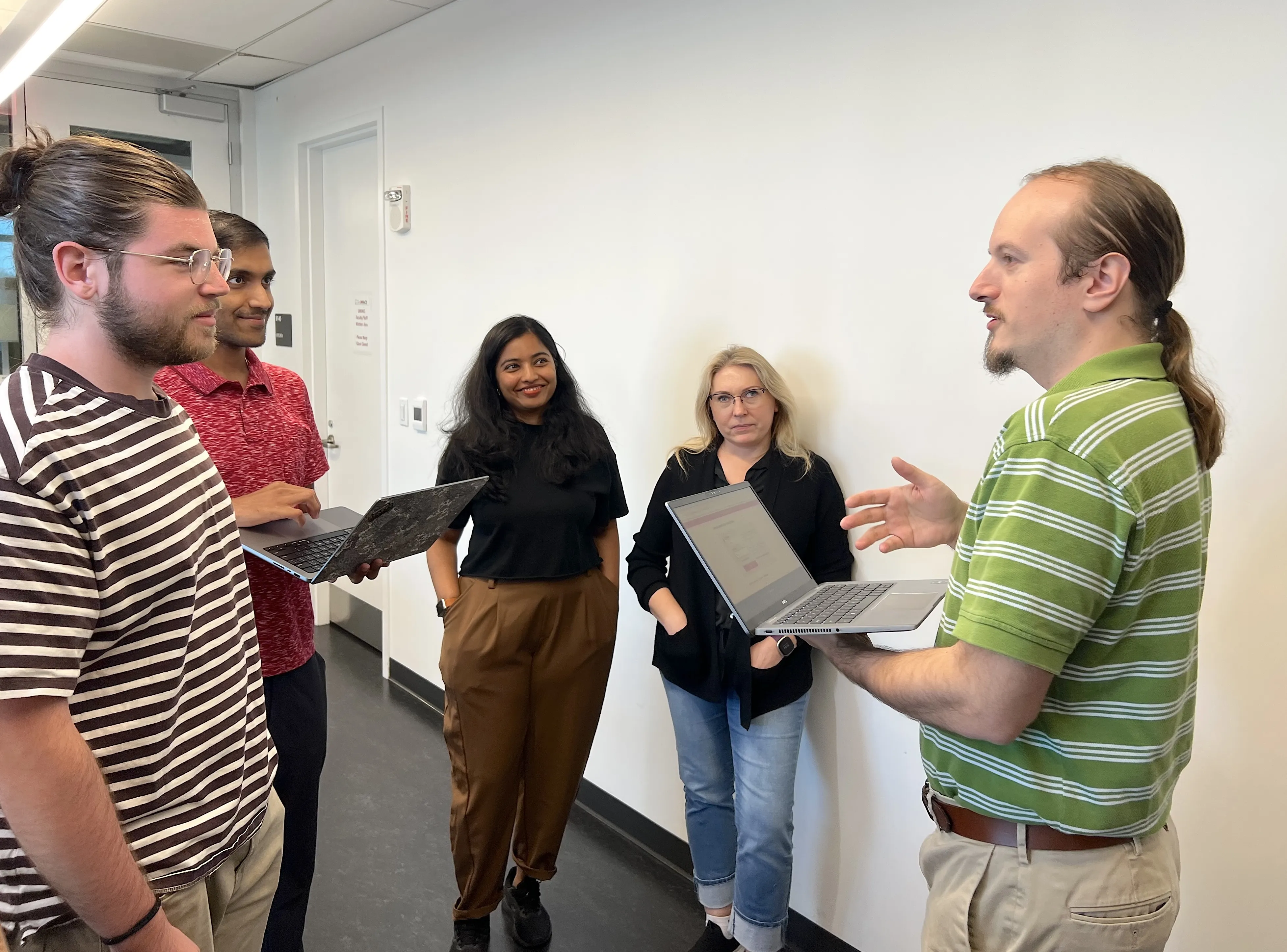
Like a news editor planning for the front page stories, Matthew Baney starts each day by scanning his key information resources—email, Jira tickets, or Slack messages—ready at a moment’s notice to respond to any overnight developments or urgent faculty requests.
“I like to be prepared to help out or provide guidance,” says Baney, the assistant director of computational systems at the University of Maryland Institute for Advanced Computer Studies (UMIACS).
This proactive mindset has defined Baney’s nearly 12-year journey from a student worker at the UMIACS Help Desk to his current leadership role, where he runs bi-weekly standup meetings to identify stalled service tickets, address computational backup system needs, and set his team’s next steps with clear priorities.
Baney’s responsibilities extend well beyond his own team’s coordination, and includes managing major technical initiatives like the university-wide shift to unified system authentication—a project requiring both strategic planning and hands-on implementation.
“I’d never want my job to evolve into just asking for updates,” he says. “I like doing the technical work myself.”
Baney also collaborates closely with UMIACS faculty on high-performance computing (HPC) systems, offering expert guidance on equipment specs, timelines, and vendor options.
One project involved the deployment of a new HPC system for an Intelligence Advanced Research Projects Activity (IARPA) award. Within a single business day, Baney and his team prepped the designated space, installed the system, and granted user access.
Another task he’s assigned to is helping to keep the institute’s data center in the A.V. Williams Building running smoothly. Balancing power, cooling, networking, and cabling for maximum efficiency can be challenging, Baney says, but he embraces it.
“We sometimes need to get creative to accommodate everyone,” he says.
Baney’s fascination with computers began early—first tinkering with his family’s desktop in elementary school, then diving into programming and hardware courses in high school. At UMD, he majored in computer science and joined the UMIACS student tech staff as a sophomore, an experience that set the stage for his career. After graduating in 2016, he transitioned seamlessly to a full-time role just two weeks later.
Throughout his time in UMIACS, Baney has worked closely with Derek Yarnell, the institute’s director of computing facilities, who describes Baney’s career arc as a testament to both his dedication and technical skills.
“Matt has adapted and dramatically grown his skill set since he came to UMIACS,” says Yarnell. “Watching him progress from supporting a small Microsoft Windows environment to now leading the technical staff’s computing group has been exciting. His commitment and excellence exemplify the kind of talent our team develops.”
The variety of his work keeps things fresh, Baney says, and mentoring students gives him a sense of purpose as he watches their skills evolve.
“Working with college-age students keeps me feeling forever young,” he jokes.
Outside of UMIACS, Baney enjoys collecting vintage video games and consoles—a passion sparked by his father’s memorabilia—and thrift shopping for unique, sustainable finds that suit both his home and wardrobe.
But a top priority has been to continue to grow—both personally and professionally—within the ever-changing tech landscape that defines his workspace.
“I'm always excited to see what the future of tech brings, and that is why I'm still in the field,” Baney says.
—Story by Melissa Brachfeld, UMIACS communications group